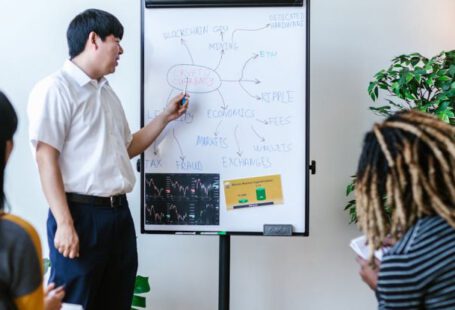The Covid-19 pandemic has brought about significant changes in various aspects of our lives, including the way education is delivered. As schools and universities worldwide were forced to close their physical doors to prevent the spread of the virus, online learning emerged as the primary mode of education. This shift to virtual classrooms raised questions about the effectiveness of online learning compared to traditional in-person instruction. Let’s explore the impact of online learning during these unprecedented times.
Adaptability and Flexibility
One of the key advantages of online learning during the Covid-19 pandemic has been its adaptability and flexibility. With traditional in-person classes no longer feasible, institutions quickly transitioned to online platforms to ensure continuity in education. This flexibility allowed students to access learning materials and attend classes from the safety of their homes. In a time of uncertainty, online learning provided a sense of normalcy and routine for both students and educators.
Engagement and Interaction
One of the main concerns with online learning is the lack of face-to-face interaction between students and teachers. However, technology has made it possible to maintain a high level of engagement through video conferencing, discussion forums, and interactive multimedia tools. Educators have found creative ways to keep students engaged, such as virtual group projects, online quizzes, and live streaming of lectures. While the dynamic may be different from traditional classrooms, online learning has proven to be effective in fostering interaction and collaboration among students.
Personalized Learning Experience
Online learning platforms offer a personalized learning experience that caters to individual students’ needs and learning styles. Students can progress through course materials at their own pace, revisit lectures for better understanding, and engage in self-assessment activities. Additionally, educators can provide real-time feedback and support to students, helping them stay on track and achieve their academic goals. The flexibility of online learning allows students to customize their learning experience to suit their preferences and learning abilities.
Access to Resources and Support
One of the challenges of traditional education is access to resources and support outside of the classroom. Online learning has addressed this issue by providing students with a wealth of digital resources, including e-books, articles, videos, and online libraries. Students can access these resources anytime, anywhere, enhancing their learning experience and deepening their understanding of the subject matter. Furthermore, online platforms offer various support services, such as virtual office hours, online tutoring, and academic counseling, ensuring that students receive the assistance they need to succeed.
Challenges and Opportunities
While online learning has proven to be effective during the Covid-19 pandemic, it is not without its challenges. Technical issues, internet connectivity problems, and digital literacy barriers can hinder the learning experience for some students. Additionally, the lack of in-person interaction and socialization may impact students’ mental health and well-being. Educators must be mindful of these challenges and strive to create a supportive and inclusive online learning environment for all students.
Looking Ahead: Embracing the Future of Education
As we navigate the complexities of online learning during the Covid-19 pandemic, it is essential to reflect on the lessons learned and embrace the opportunities for innovation in education. Online learning has demonstrated its effectiveness in providing continuity in education, fostering engagement and interaction, and offering personalized learning experiences. Moving forward, educators and institutions can leverage technology to enhance the quality of education and create a more inclusive and accessible learning environment for all students. By embracing the future of education, we can ensure that online learning remains a valuable tool in shaping the minds of tomorrow’s leaders.





